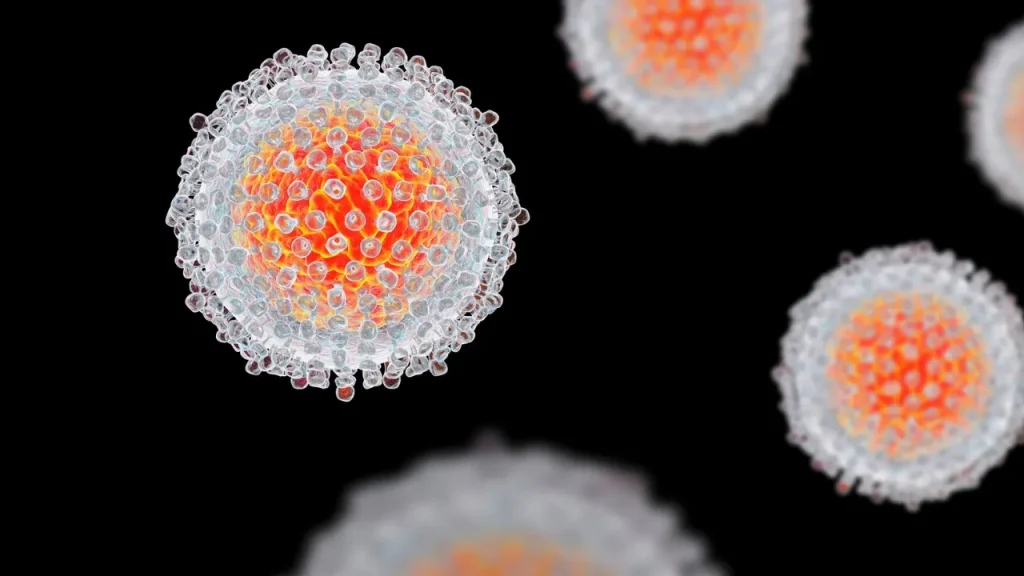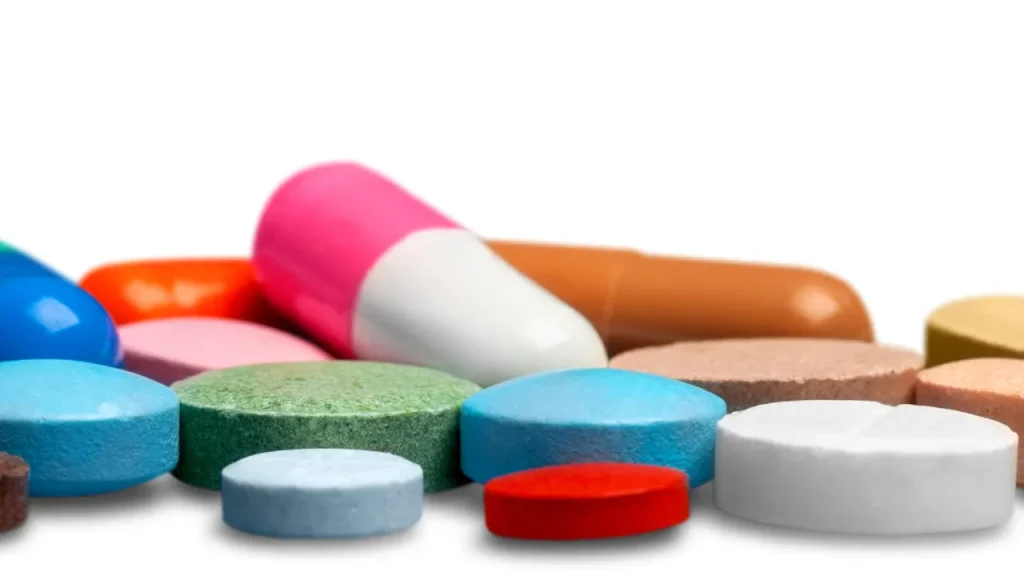Bloodroot is a perennial blooming plant endemic to the eastern United States and Canada. Bloodroot is also known by the scientific name Sanguinaria canadensis. The plant gets its name from the brilliant reddish-orange sap found in its roots and rhizomes, which has been utilized as medicine for ages by native peoples. Bloodroot has historically been used to cure a variety of illnesses, such as cancer, skin diseases, and even lung problems.
Although Bloodroot has a long history, there hasn’t been much western research done on its safety and effectiveness. With a focus on the chemistry and physiological mechanisms underpinning its effects on the body and brain, this article will cover the nature, health advantages, ideal dosage, side effects, potential substance interactions, and responsible use of this dietary supplement.
You May Also Like:
Levium Premium Liquid Fast-Acting Natural Stress Relief Supplement: In-Depth Review
Wild Mint: Benefits, Dosage, Side Effects, Drug Interactions, And Other Important Information
Bloodroot: Benefits, Dosage, Side Effects, Drug Interactions, And Other Important Information is an original (NootropicsPlanet) article.
Nature of Bloodroot
The Papaveraceae family of plants includes the flowering plant Bloodroot, which is distinguished by its lobed, white blooms and leaves. Bloodroot naturally grows in deciduous forests and meadows in the eastern United States and Canada. The main therapeutic components of Bloodroot are its alkaloids, of which sanguinarine is the best-known and most extensively studied. Bloodroot’s diverse biological effects, including as its antibacterial, anti-inflammatory, and anticancer characteristics, are due to these alkaloids.
Health Benefits of Bloodroot
Antimicrobial characteristics:
Bloodroot is antimicrobial in its ability to combat a variety of bacteria, fungi, and viruses. Sanguinarine and other plant-based alkaloids stop bacterial growth, break up biofilms, and lessen bacterial pathogenicity. When treating skin diseases and dental plaque, these benefits are essential. Bloodroot extracts have been added to toothpaste and mouthwashes in dentistry to enhance oral hygiene and lessen gingivitis.
Inflammation-reducing qualities:
Bloodroot shows anti-inflammatory action through the suppression of pro-inflammatory mediators such cytokines and chemokines. Sanguinarine is responsible for this impact. Sanguinarine has the ability to modify the nuclear factor-kappa B (NF-B) signaling pathway, a crucial regulator of immunological and inflammatory responses. As a result, Bloodroot may be useful in treating a variety of inflammatory diseases, including as gastrointestinal problems, dermatitis, and arthritis.
Cancer-preventive and Cancer-antiproliferative effects:
Sanguinarine has drawn attention for its potential anticancer effects. Sanguinarine attracts this attention due to its capacity to cause cell cycle arrest and apoptosis in a variety of cancer cell lines. By concentrating on vascular endothelial growth factor (VEGF) signaling pathways, sanguinarine can also prevent angiogenesis, or the creation of new blood vessels, which inhibits tumor growth and metastasis. More in-depth study is required to assess the security and effectiveness of Bloodroot as a potential anticancer agent.

The Chemistry of Bloodroot
A class of naturally occurring chemical substances called alkaloids is present in Bloodroot. This particular class of alkaloids is generally made of carbon, hydrogen, nitrogen, and rarely oxygen. Sanguinarine, a benzophenanthridine alkaloid with potent antiproliferative, anti-inflammatory, and antibacterial capabilities, is one alkaloid responsible for Bloodroot’s biological effects. Bloodroot also contains the alkaloids chelerythrine, berberine, and coptisine.
The planar, aromatic isoquinoline alkaloid called sanguinarine can intercalate between DNA base pairs and interact with a variety of biological targets. Inhibition of particular enzymes can result from this interaction, such enzymes include protein kinases and topoisomerases, which are necessary for cellular replication and survival, as well as cell cycle arrest and apoptosis.
Physiological Mechanisms of Action
Antimicrobial effects:
The capacities of Bloodroot’s alkaloids, particularly sanguinarine, to damage cell membranes and prevent the creation of vital cellular components in bacteria, fungi, and viruses are what gives the plant its antibacterial qualities. The bacterial communication system known as quorum sensing, which is employed by bacteria to coordinate gene expression and control pathogenicity, can likewise be inhibited by sanguinarine. Bloodroot can successfully prevent the growth and survival of numerous microbial infections by interfering with these activities.
Decreased inflammation:
Bloodroot’s capacity to modify the NF-B signaling system, a significant regulator of immunological and inflammatory responses, accounts for its anti-inflammatory effects. By concentrating on upstream elements of the system, such as the inhibitor of B kinase (IKK) complex, sanguinarine can prevent the activation of NF-B. As a result, pro-inflammatory mediators, including cytokines and chemokines, express less frequently, which eventually reduces inflammation.

Optimal Dosage of Bloodroot
Finding the ideal dosage for you is difficult due to the scant research on the usefulness and safety of Bloodroot. Bloodroot extracts are commonly found in toothpaste and mouthwashes for dental uses at low concentrations (0.01-0.03%). Bloodroot paste or ointments containing Bloodroot extracts are used gently to the affected area once or twice daily for a brief length of time when treating skin diseases such as warts and skin tags. The precise dosage and length of treatment for these applications, however, differ greatly based on each user’s unique situation and the substance in question.
It’s vital for you to remember that using Bloodroot internally is typically not advised due to the possibility of harmful side effects and toxicity. It is essential that you seek the counsel and direction of a healthcare expert before using Bloodroot for any purpose.
Side Effects of Bloodroot
Bloodroot use in excess or for extended periods of time may have a number of negative side effects. Skin irritation, redness, and burning sensations are frequent adverse reactions to topical Bloodroot treatments. Bloodroot can harm tissue in more serious situations, which can result in scarring and deformity.
Bloodroot has been known to induce nausea, vomiting, diarrhea, and stomach pain when consumed. Additionally, Bloodroot contains alkaloids, mainly sanguinarine, which can cause hemolysis, methemoglobinemia, and hepatotoxicity. Bloodroot ingestion can, in extreme circumstances, cause rapid liver failure, coma, and death.

Potential Substance Interactions with Bloodroot
Bloodroot may interact negatively or less effectively with a variety of drugs and other substances. Bloodroot’s antiplatelet and anticoagulant qualities may make bleeding more likely when used with blood-thinning drugs like warfarin, aspirin, or clopidogrel. Bloodroot may also interact with drugs that the liver metabolizes, possibly reducing their clearance and raising the possibility of negative side effects.
It’s also important for you to think about how Bloodroot can mix with other dietary supplements or herbal medicines. For instance, taking Bloodroot along with other medications or supplements known to have antiplatelet or anticoagulant properties, including cod oil, garlic, or ginkgo biloba, may make bleeding even more likely.
Responsible Use of Bloodroot
Bloodroot should only be used as a dietary supplement after carefully weighing all of its potential advantages, drawbacks, and interactions with other drugs or substances. It is important for you to approach the usage of Bloodroot with caution given the scant scientific evidence that supports its safety and usefulness.
For individualized advice and direction, anyone who are thinking about using Bloodroot for any purpose should speak with a healthcare expert. To reduce potential hazards, it is also crucial to get Bloodroot products from reliable suppliers and to adhere to the suggested usage instructions.
Bloodroot:
Conclusion
Bloodroot is native to North America and grows abundantly. One of Bloodroot’s strengths is the alkaloids it contains. The alkaloids contribute to its powers to improve health in some truly important areas, such as in fighting cancer in multiple ways. It fights off bacteria, viruses, and fungi—a truly versatile supplement. Bloodroot is powerful, so please exercise caution when ingesting, and please consult a professional before doing so. Its powers to help health also come with powers to hurt it if not taken responsibly or with awareness of how it can interact with other substances, such as medicines.

References:
- “Bloodroot: Uses, Side Effects, Interactions, Dosage, and Warning.” Retrieved from: https://www.webmd.com/vitamins/ai/ingredientmono-893/Bloodroot
- “Botanical Briefs: Bloodroot (Sanguinaria canadensis L.).” Retrieved from: https://pubmed.ncbi.nlm.nih.gov/34847001/
- “Dermatologic uses of Bloodroot: a review and reappraisal.” Retrieved from: https://pubmed.ncbi.nlm.nih.gov/33128472/
Important Note: The information contained in this article is for general informational purposes only, and should not be construed as health or medical advice, nor is it intended to diagnose, prevent, treat, or cure any disease or health condition. Before embarking on any diet, fitness regimen, or program of nutritional supplementation, it is advisable to consult your healthcare professional in order to determine its safety and probable efficacy in terms of your individual state of health.
Regarding Nutritional Supplements Or Other Non-Prescription Health Products: If any nutritional supplements or other non-prescription health products are mentioned in the foregoing article, any claims or statements made about them have not been evaluated by the U.S. Food and Drug Administration, and such nutritional supplements or other health products are not intended to diagnose, treat, cure, or prevent any disease.


